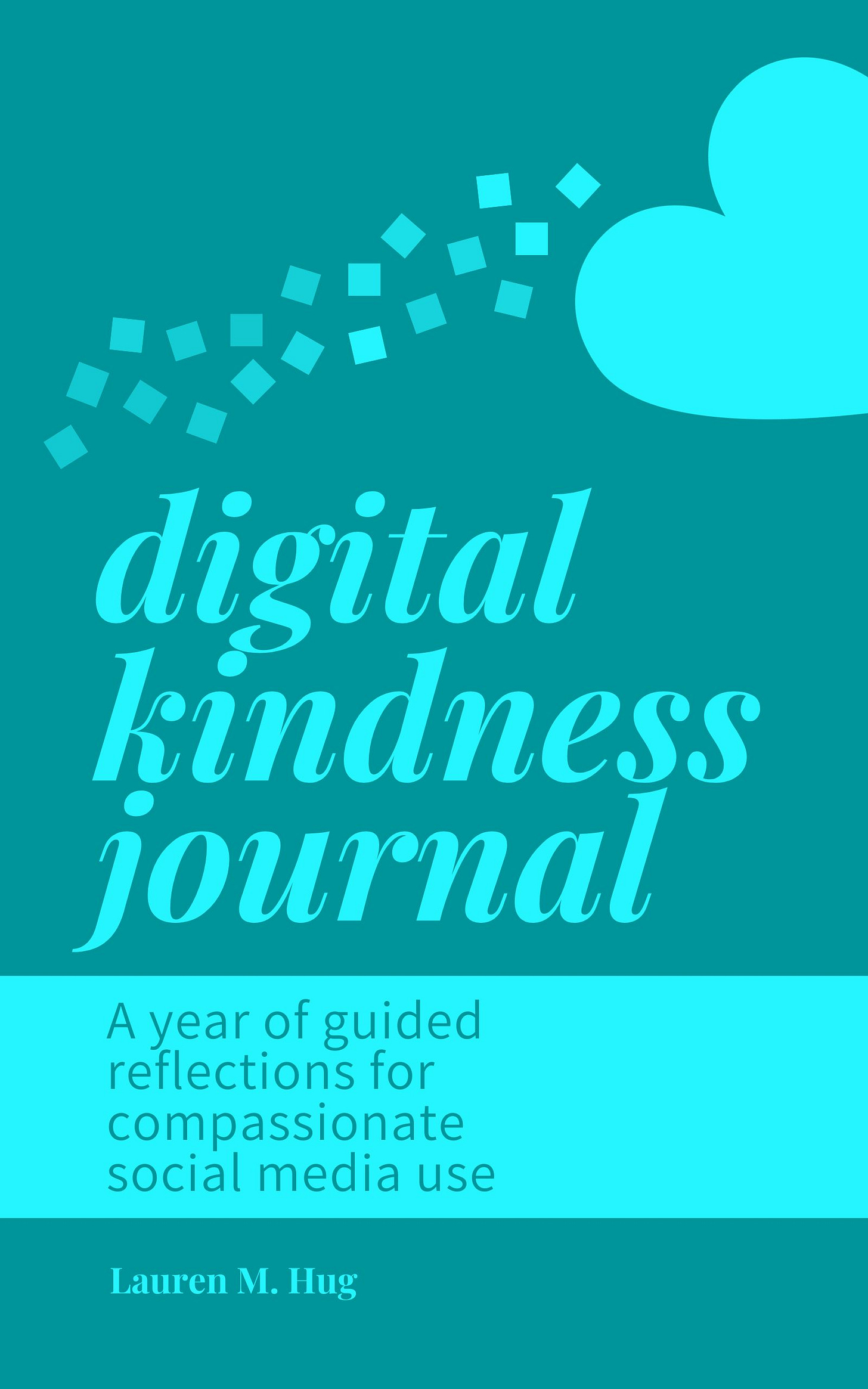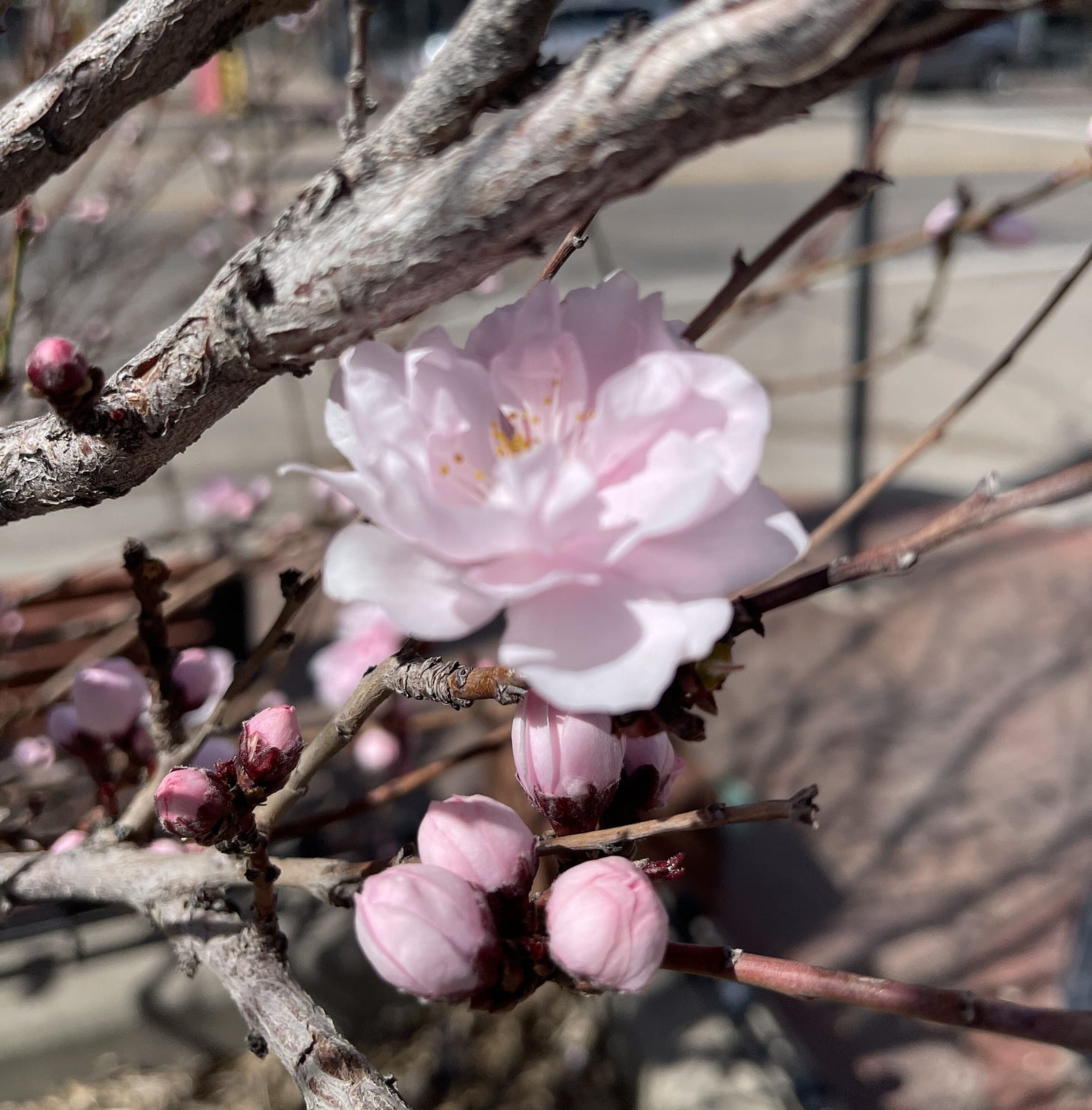The Power to Make Meaning
Pouring women's voices into digital spaces (safely)
March is Women’s History Month. This is Part 3 of a talk a I recently gave at an International Women’s Day event titled Women’s Voices in Digital Spaces: The Power to Make Meaning. Part 1 covered how online gender-based violence silences women’s voices online, meaning women’s experiences, perspectives, and ideas are underrepresented in both the design of digital spaces and the content flowing through them. Part 2 took a look at some women who are working to transform digital spaces into safer, more inclusive spaces. This newsletter provides suggestions on how to safely pour our own voices into digital spaces and use social media to listen to and learn from people who face more or different violence online and in the physical world.
The world needs women’s stories, experiences, and perspectives, but digital spaces can be hostile and dangerous. Personal wellbeing has to come first. Before wading into online storytelling and discussion, establish meaningful boundaries and practices for yourself, so that you feel safe and in control of your digital experience.
We find ways of making ourselves feel safe(r) in the physical world, and we can do the same in online spaces.
We can choose which digital places we frequent and the amount of time we’re willing to spend there. We don’t have to participate on all platforms all the time. Choose the one(s) you like the best; the social media networks and digital spaces where you feel least exposed to violence and ugliness. Your voice will reach people wherever you are.
We can have our tools of self-defense ready, like pre-written responses for when someone violates our boundaries or blocking anyone who gives us the creeps or makes us feel unsafe … or who we just don’t want to interact with. Our accounts are not public forums or free speech spaces. They’re like our living rooms on the web. We don’t let everyone into our living room and we have no problem escorting someone out when they refuse to respect us. In your digital spaces — your own posts, walls, groups, and forums — you don't have to allow certain topics, comments, words, phrases, or behaviors. You are not required to have and hold space for every idea and every thing that other people want to talk about.
In physical spaces, woman tend to stick together. We go to the bathroom together, walk each other to our cars, watch until our friends get safely inside wherever they’re going. We drop our location when we’re on blind dates or buying something from Facebook Marketplace to let our friends know how to find us if something goes wrong. We can take care of each other in online spaces as well. We can post supportive comments on other women’s content, jump in to defend fellow women when we see them being attacked, and make it clear that inappropriate behavior is unwelcome and not tolerated wherever we are.
And, of course, we can always leave spaces whenever we feel unsafe in the moment. But let’s not vacate digital spaces entirely. Let’s develop an exit plan for the times we are overwhelmed.
Self-plug: my books are designed to help people think through how they want to show up and participate digital spaces. What do you care so much about that you want to share about it online? What conversations and interactions are you absolutely unwilling to have in digital spaces? You get to decide how you use this technology.
Share your stories
Once you’ve established your boundaries — SHARE! Share your experiences, your stories, your perspectives. Things that bring you joy. Things you find interesting. Things you’re learning. If something is new to you, it’s new to a bunch of other people too!
The dominant social networks are designed in ways that incentivize us to post “hot takes” and always be “marketing” ourselves. Just because a lot of what we see in these spaces fall into those categories doesn't mean we have to use them that way. We can use social media however we want. When you pour your artwork or odd observations or book recommendations or anything you find meaningful and interesting into digital spaces, it changes the flow of content and brings attention to things that people might not otherwise see or know. It dilutes the ick that's out there.
I share weird-flavored Oreos, Twinkies, and other foods in my online spaces. Almost everyone who follows me online who meets me in person says something about Oreos to me. My Oreo posts don’t directly change the world, but when I choose to post something weighty, I’m not a random stranger on the internet, I’m the Oreo lady. A humanized person. And that makes it harder to dismiss whatever I have to say.
Pouring bits of yourself into these spaces does make a difference. The vast majority of people on social networks aren’t creating anything. They’re scrolling through content created by others. Anyone who creates content has outsized influence over those who are only consuming it. Your content changes what people see online, what they expect from digital spaces, what they know about the world, and what they believe to be possible.
Support and amplify what other women pour into digital spaces.
If you don't have the bandwidth to tell your own stories on social media or don’t feel comfortable talking about some topics, amplify the voices of women who are sharing similar experiences or who are talking about things that mater to you. Teach the algorithms that their content matters. Spread their perspectives and give their voices more weight in digital discourse.
Seek out voices of womxn with different lived experiences
In a world where it is incredibly easy to listen to voices different from our own, I believe it’s our responsibility to listen to and learn from people who face more or different violence online and in the physical world. Below are a few dynamic and multifaceted creators intentionally using their online platform to make a difference. They challenge me, expand my understanding of the human experience, and give me hope for a radically better future.
Ashley Cornelius is a nationally recognized spoken word artist, the 6th Pikes Peak Region Poet Laureate, community coordinator, and guest lecturer. Her unapologetic poetry focuses on her intersectionality as a black woman, social injustice, and self-love. Follow her on Instagram (@Accpoetrynow), watch a spoken word performance, and visit her website to learn more about her creations.
Raquel Vasquez Gilliland, a Mexican American poet, novelist, painter, mother, and plantswoman, talks about folklore, our relationship with the natural world, her writing, and her lived experiences. Follow her on Threads (@raquelvasquezgilliland_poet) and visit her website to learn more about her books and poetry.
adrienne maree brown grows healing ideas in public through her multi-genre creations. Among many other things, she has nurtured Emergent Strategy, Pleasure Activism, Radical Imagination and Transformative Justice as ideas and practices for transformation. Follow her on Instagram (@adriennemareebrown) and visit her website for more about her writing, podcasts, music, and institute.
Alok Vaid-Menon is an internationally acclaimed poet, comedian, and speaker who addresses misconceptions and fears about gender non-conformity, helping us see beyond the gender binary and embrace the abundant love that comes from being able to experience people outside of norms. Follow them on Instagram (alokvmenon) and visit their website for their writing, videos, and tour dates.
These stories and perspectives — and countless others pouring their voices into digital spaces — are changing what people know and believe about the world.
We all have that power!
We decide what others see
With more and more people accessing news and information via their social media feeds, the things we choose to amplify, comment on, and talk about in our own posts impact how those in our networks perceive issues and events. Our digital activity changes what we all believe to be good, just, and possible.
We make meaning
If you haven’t seen the Barbie movie yet, you might want to stop reading because spoilers are ahead …
In Barbie, the title character begins having unusual, unwanted thoughts (coming from a human she doesn’t know, but is connected to); similar to the way thoughts from others are ever-present in our social media feeds. Barbie hopes she can make the thoughts go away so she can return to her status quo.
With newly flat feet (they’re normally on tip-toe to perfectly fit stilettos), she mutters she’d never wear high heels if her feet had always been flat. Yet she instinctively chooses a high heel over a Birkenstock when given the option, insisting that she wants the shoe that used to fit, even though it now causes her pain. Throughout the movie, she frequently expresses a desire for nothing to ever change. When another character tells her life IS change, she responds: “That’s terrifying. I don’t want that.”
A lot of us feel this way when confronted with things that challenge or change our understanding of the world. Things that threaten our sense of security and disrupt our status quo. Digital spaces are full of voices telling different stories than the ones we’ve always heard.
But Barbie realizes she already has changed. The initially unwanted thoughts led her on a journey that made her different from what she once was, and she can’t go back. She’s seen a bigger world, and she no longer finds solace and belonging in the Barbie-centric narratives and rituals handed down to her.
“I want to be a part of the people that make meaning, not the thing that is made,” she says.
For generations, woman have been made — by the systems and the ideologies handed down to us by male thinkers and designers and creators. Yes, we’ve found ways of asserting our independence, our autonomy, and our own creativity, and some women have had tremendous influence. But the influence of women is small compared to the number of men still making most of the major decisions that impact all of us.
The digital world gives us the ability to make meaning — on our own terms, in our own ways, in our voices — without gatekeepers blocking, editing, or sanitizing our lived experiences, our hard-won wisdom, or our natural intuition. Digital gender equality matters because of educational and economic opportunities, YES. But it also matters because we need more women making meaning, pouring our unique experiences and perspectives into digital discourse and telling different stories about what it means to be human.
I don’t want to be the thing that is made. I want to make meaning.
Let’s make meaning … and nurture equality with the meaning we make.
Digital Kindness Journal Prompt #9
List the people and accounts you SEE the most on social media?
Jot down anything you notice as you look over the list.
Answer this prompt wherever you journal or the comments section to participate in a community discussion. The Digital Kindness Journal: a year of guided reflections for compassionate social media use contains a year's worth of guided prompts and reflections to help users develop their own unique approach to meaningful, compassionate, and impactful social media use.
MISCELLANEA
I recently guested on the podcast “That Independent Streak with Wendy Campbell” talking about the Digital Kindness Journal and how to navigate the online universe with empathy, positivity, and genuine human connection. Listen here or watch here.
When I first started writing about the upsides of social media, I was enamored with the ability it gives us to collaboratively help each other financially through crowdfunding. Digital crowdfunding has demonstrated we do care about our fellow human beings and are quite willing to give money to strangers. It has also revealed, however, how many of us are struggling to meet basic needs and the failure of our governments and systems to assist us, “commodifying our suffering for entertainment” in the words of Alissa Quart writing in Bootstrapped: Liberating Ourselves from the American Dream. Due to a series of unexpected events and a major medical event, my friend Kevin, a person I first met through social media who became a physical world friend as well, has had to turn to GoFundMe to meet his needs. I’m including the link to his GoFundMe here, in case his story resonates with any of you and you feel inclined to give or share.
The Center for Countering Digital Hate (CCDH) has been researching and documenting the dramatic increase in hate speech on Twitter (I'refuse to call it X) since Elon Musk took over the social network. On March 25, 2024, a federal judge dismissed a lawsuit by Musk against CCDH in which Musk alleged CCDH’s reports on hate speech had caused advertisers to flee the network, costing it millions of dollars. The judge said the lawsuit was intended to punish CCDH for its speech. Imran Ahmed, the CCDH founder and CEO, pointed out Musk’s hypocrisy in claiming to be a proponent of free speech and attempting to using his wealth to silence critics.
It’s starting to feel like spring! What does spring mean to you?




